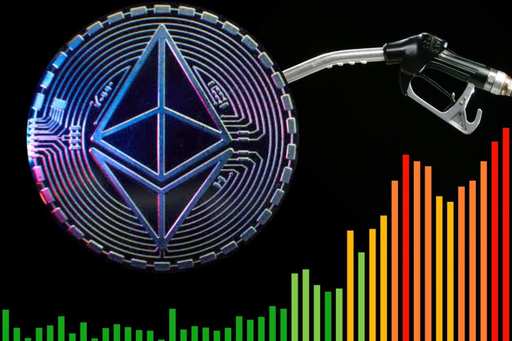
ETH User Spends $120k For Gas on One Transaction: Not Possible on Solana
The rapid growth of the cryptocurrency and blockchain industry has brought with it a significant increase in transaction fees. While some platforms, like Ethereum, have become notorious for their high gas fees, others like Solana have emerged as a more cost-effective solution.
- Published:
- Edited:
The rapid growth of the cryptocurrency and blockchain industry has brought with it a significant increase in transaction fees. While some platforms, like Ethereum, have become notorious for their high gas fees, others like Solana have emerged as a more cost-effective solution. By analyzing a single Ethereum transaction worth $119,620.27, we can shed light on the potential of Solana as a more scalable and efficient option for mass adoption.
A Costly Ethereum Transaction
On May 8, 2023, an Ethereum transaction that spent $119,620.27 in gas fees took place for a swap of $150k. This hefty fee is not an isolated incident, as Ethereum has often experienced high transaction costs due to its limited scalability and congested network.
BREAKING: 1 WALLET PAID 64 $ETH ($119,620.27) TRANSACTION FEE ON @ethereum pic.twitter.com/XFNTezQlDL
— DEGEN NEWS 🗞️ (@DegenerateNews) May 8, 2023
Ethereum was facing network congestion issues at the time, surmounting in 4-hour wait times just to process one transaction.
Solana's Advantage: More Transactions for Your Buck
In contrast, Solana boasts significantly lower transaction fees, currently at $0.000125 per transaction. With the $119,620.27 spent on a single Ethereum transaction, one could process a staggering 957,762,160 transactions on the Solana network. This highlights the massive difference in efficiency between the two platforms.
Moreover, Solana's underlying technology allows it to handle up to 65,000 transactions per second (TPS), whereas Ethereum 2.0 aims to reach 100,000 TPS after its complete rollout. Solana's impressive throughput is due to its unique consensus algorithm, Proof of History, and its parallel processing capabilities.
Mass Adoption: Solana's Prime Position
As cryptocurrency adoption continues to grow, the demand for scalable and cost-effective platforms becomes increasingly important. Solana's low transaction fees and high throughput make it an attractive choice for both users and developers.
- Accessibility: Low fees make it possible for users across the globe to participate in decentralized finance (DeFi) applications, non-fungible tokens (NFTs), and other blockchain-based services without being priced out by high transaction costs.
- Scalability: Solana's capacity to handle a large number of transactions per second ensures that the platform can accommodate a surge in usage without congesting the network and driving up fees.
- Developer-friendly: The Solana ecosystem has attracted a growing number of developers who seek to build innovative applications on a high-performance, low-cost platform. This has led to the launch of various DeFi projects, NFT platforms, and decentralized applications (dApps) on Solana.
Conclusion
The stark difference in transaction costs between Ethereum and Solana underscores the latter's potential for mass adoption. With its low fees, high throughput, and growing ecosystem, Solana is well-positioned to become a leading blockchain platform in the race for mainstream acceptance. As the industry evolves, platforms like Solana will play a crucial role in making blockchain technology accessible and affordable for users worldwide.


